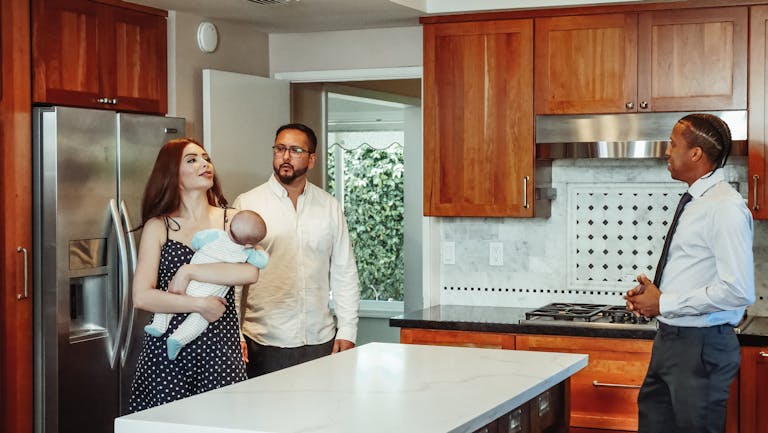HUD Property Guidelines And Requirements On FHA Home Loans
This Article Is About The HUD Property Guidelines And Requirements On FHA Home Loans:
FHA loans are the most popular type of mortgage loan program in the United States. First-time homebuyers, borrowers with less than perfect credit, and those who recently filed for bankruptcy and/or had a housing event can become eligible for FHA financing. However, FHA loans are for owner-occupant primary one-to-four unit homes only.
FHA loans are ideal for first-time homebuyers with as little as a 3.5% down payment. Homebuyers can become eligible for FHA loans in just two years after Chapter 7 bankruptcy discharge. Homebuyers in an active Chapter 13 Bankruptcy repayment plan are eligible for FHA loans just one year into the Chapter 13 repayment plan. There is no waiting period after the Chapter 13 Bankruptcy discharged date to qualify for an FHA loan.
Homebuyers with less than perfect credit and bad credit can qualify for an FHA loan. Outstanding collections and charged-off accounts do not have to be paid off. Borrowers with lower credit scores are eligible for FHA financing. To qualify for a 3.5% down payment FHA loan, the minimum credit score required is 580. Homebuyers with under 580 credit scores and down to 500 FICO are eligible for an FHA loan. However, if your credit score is under 500 FICO, you need a 10% down payment.
The waiting period is only three years after a foreclosure, deed in lieu of foreclosure, short sale to qualify for an FHA loan. In this article, we will discuss and cover the property standards for FHA financing.
Prequalify for a mortgage in just five minutes.
Role Of FHA And HUD Guidelines
- In order to originate FHA loans, the lender needs to be a HUD registered mortgage lender
- FHA loans make homeownership possible to first time home buyers or home buyers who have less than perfect credit
- Borrowers with a prior bankruptcy, foreclosure, deed in lieu of foreclosure can qualify for FHA Loans
- Borrowers can qualify for FHA Home Loans with 580 credit scores with a 3.5% down payment
- FHA loans are one of the easiest mortgage programs available in the United States
- In order to qualify for an FHA loan, the home appraisal need to meet and qualify HUD mortgage lending guidelines
- One of those guidelines is that the subject property needs an FHA Home Appraisal
Two things that are the most important factors in an FHA Home Appraisal is that the home’s value appraises out and that the home is secure and habitable.
Safety Is Key For The Property To Be Eligible For An FHA Loan
HUD Property Guidelines require homes need to meet basic safety requirements.
Per FHA Property Guidelines, the subject property needs to be habitable, be safe, and be secured. If the home appraisal does not meet minimum HUD Property Guidelines, the home appraiser will not pass the home appraisal. The defects noted by the appraiser that do not meet HUD Property Guidelines need to be corrected and a re-inspection needs to be ordered.
Most home sellers who are represented by listing agents realize the home needs to meet HUD Property Guidelines. In the event, if the property does not meet HUD Property Guidelines, home sellers normally have to do the repairs. An appraisal re-inspection costs money. HUD Property is straightforward.
FHA Home Appraisal Versus Conventional Appraisals: Value, Safety, Security
FHA loans require the borrower to have a 580 credit score and require a 3.5% down payment and will lend up to 96.5% of the appraised value.
- In the event, if the home does not appraise out, then the home buyer needs to pay for the difference
- For example, if the buyer is purchasing a home for $150,000 and the FHA Home Appraisal comes out to only $100,000, the lender will only lend 96.5% of the appraised value or $96,500
- Buyer needs to come up with the difference
- On the flip side, if the buyer is purchasing a home for $100,000 and the FHA Home Appraisal is $150,000, the lender will lend borrowers 96.5% of the purchase price
- on this case will be $96,500
There is a basic checklist property need to meet to pass the FHA Appraisal Requirements. We will discuss HUD Property Guidelines on this blog.
HUD Property Guidelines On Condition Of Subject Property
HUD, the parent of FHA, wants the property they insure to be in good condition. The property needs to be in move-in condition and habitable.
The property may be ineligible if there are factors affecting the health and safety of occupants. Structural soundness is a must.
Homes not meeting HUD Property Guidelines, the appraiser will note the defects in the appraisal report. Either home sellers and/or buyers need to correct them.
Once corrected, a re-inspection will need to be ordered. If the defects have been corrected, the appraiser will pass the property. If a property does not meet HUD Property Guidelines and is beyond a simple repair, borrowers can explore going with FHA 203k Loan Program.
FHA 203k Renovation Loans allow acquisition and construction loan all in one closing. 3.5% down payment on the after-improved value is required
Common Issues And Deficiencies On Property Not Meeting FHA Appraisal Guidelines
HUD requires that the subject property be habitable.
- Cannot have health hazards such as loose wiring, peeling paint, broken windows
- Outstanding building violations will be addressed and need to be corrected
- Appliances need to be operational and in good working order
- Roofs need to have a 3-year lifespan
- Garage door openers will be tested and need to be in operating order
- The foundation needs to be solid
- No mold allowed
- Cracks and erosion that may affect the foundation will need to be repaired
HVAC System needs to be fully operational.
Exterior Inspection Of Subject Property
FHA Appraiser will also inspect the exterior of the subject property. The subject property cannot encroach into an adjacent property such as the following:
- Garage or outbuilding encroachment to neighbor’s property line
- Encroaching to utility easements and/or shared driveways
- Need ample right away and/or access from a private street of the proper
FHA Home Appraisal Basics
An FHA Home Appraisal is very similar to a conventional appraisal.
- FHA Appraisers use the sales comparison approach
- The sales comparison approach is where the appraiser uses the recent sale prices of similar and like homes within one mile or less distance from the subject property
- FHA Appraisers also use the cost approach appraisal method which is derived on how much it will cost to build the same property
The focus of an FHA Appraisal is not just getting the right value to protect the lender’s collateral but also to make sure that the home is secure and habitable.
- The FHA appraisal will note all the items deemed not safe and not habitable
- The home needs to be free from broken windows, loose wiring, leaky roofs, peeling paint, and foundation damages
- Realtors Worry About FHA Appraisal
Many veteran realtors advise their sellers not to accept a buyer who is planning on getting an FHA insured mortgage loan because they remember the days where they had knit picky FHA appraisers.
- FHA Appraisal process has gone through many changes and an FHA appraisal is not as tough as they used to be
- Many lenders can waive certain repair items noted by the appraiser as long as they are minor items such as a leaky faucet or minor broken windows
- An older roof is fine as long as the roof longevity is at least 3 years
- Fuse boxes are fine too as long as the house does not have any building violations
FHA Appraisals Are Stuck With The Home
Once the lender orders the FHA appraisal on a subject property but gets a low value, that value will be with the subject property for a period of 120 days.
- With conventional appraisals, in the event, if home buyers get a low appraisal and lender will not allow getting another appraisal so the property can get a higher value
- Borrowers can change lenders and can order a new conventional appraisal
- However, that is not the case with an FHA appraisal
The FHA appraisal is stuck with the home for a period of 120 days.
Properties That Appraise Below Purchase Price
If the lender representing the home buyer knows that the FHA Appraisal is undervalued and has comparable sales to justify it, the lender can do two things:
- Do an FHA Appraisal Rebuttal
- Order a new FHA Appraisal
Appraisal Rebuttals are often very difficult unless there are strong comparable sales. If the appraiser will not change the value of an existing FHA Appraisal with solid comparable sales, the lender can order a new FHA Home Appraisal. However, the borrower cannot pay for the second appraisal. The lender needs to pay for the second FHA Appraisal.
Can FHA Appraisal Be Used On Conventional Loans
For homebuyers who are not sure on whether or not to use an FHA or Conventional Loan, we recommend ordering an FHA Home Appraisal. Lenders will honor an FHA Appraisal on Conventional and/or NON-QM Loans. However, a conventional home appraisal cannot be transferred from one lender to another. FHA Appraisals can be transferred from one lender to another.
FHA appraisals have much more weight than conventional appraisals. If a home buyer changes their loan program from conventional to FHA Loan and they ordered a conventional appraisal already, then a new FHA Appraisal needs to be ordered. All non-QM lenders will honor an FHA Appraisal from a different mortgage company but not a conventional appraisal. For more information on this topic, please contact us at Gustan Cho Associates at 800-900-8569 or text us for a faster response. Or email us at gcho@gustancho.com. The team at Gustan Cho Associates is available 7 days a week, evenings, weekends, and holidays.







